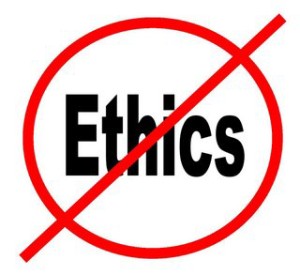In the last decade, we have seen technology rapidly evolving, result in the rise of web search engines as Google, Yahoo, and Chrome, as well as social media like Facebook, Instagram, and Twitter. We have access not only to information or news in seconds, through our smartphones, but also, able to work, shop, and communicate with anyone. Consequently, society has changed the way we communicate to the way we do business. Companies in their attempt to sell products are willing to do almost anything to get attention from their target audience, even if some practices are unethical.
The Internet and social media have shortened people’s attention span, and companies are literarily fighting to get attention from the audiences. Since audiences are not loyal to buying the same products or consuming news. They go to different blogs and read social media’s news feed to get a sense of the diverse approaches and angles of the famous story, event or social issue. Back in the day, the traditional media, such as television, radio and newspapers was the primary source of news, information, and provided updates on local, national and worldwide events. The news reported on traditional media seems to be credible and reliable, and even journalists, reporters, and broadcasters were truth seekers, who informed equitably and honestly of the current events or issues to the mass audience. The merger of the Internet, and later the popularity of the social media become the driven force for the media cycle.
The new media cycle usually starts in having someone getting paid to write a blog. Since blogs have emerged as a source of information and generated news, companies result in paying advertisements and ads on the most trafficked blogs to hopefully reaching out to their target audience. The bloggers’ main concern is populating as many stories or articles as possible to pick readers’ interest and maintain a high number of pageviews. To keep up with the daily posting, bloggers use information from diverse sources from unknown emails, random websites to companies pitching and sending information to write about product’s reviews, stories, and articles. Bloggers have master the art of manipulating not only media but also tricking readers into clicking their headlines. The blog headlines are catchy and full of a rhetorical question that often does not represent the content of the stories or articles (Brandonomics.com, 2014). The most popular blogs are those having enticing headlines with a combination of extremist, hatred, scandal, and dramatic stories and articles that result in the latest social media’s news feed (Brandonomics.com, 2014). If the blog’s article or story becomes a hot topic on social media, it usually ends up on web search engine. Then, the traditional media gathered information from the internet, blogs and social media to generate news, which often comes from unreliable sources.
It seems that ethics as professionals and consumers has changed as technology evolves. It is scary how social media has become the driving force for media and media’s influencers are making up stories to drive more traffic to their blogs, and then earn a stable income. Consumers also are feeding the cycle by reading unsubstantial reviews, stories, and articles, which later end up on social media. It is an endless cycle feed by business, professionals, and consumers, where ethics seems not longer existent. The only way we could stop the cycle is changing as consumers the way we consume information, news, and products, so marketers, publicist, journalist and public relations practitioners will strive for having the highest ethical standards to conduct business.
References
Brandonomics.com, (2014). Trust Me I’m Lying — Book Summary. Retrieved from: https://bradonomics.com/trust-me-im-lying-summary/
Holiday, R. (2012). The keynote by Ryan Holiday at TNW Latin America 2012 about his NYT bestseller Trust me, I’m Lying. Retrieved from: https://mcm.usc.edu/mod/assign/ view.php?id=39158


4 Responses to The Era of Social Media Where Ethics are not Allowed